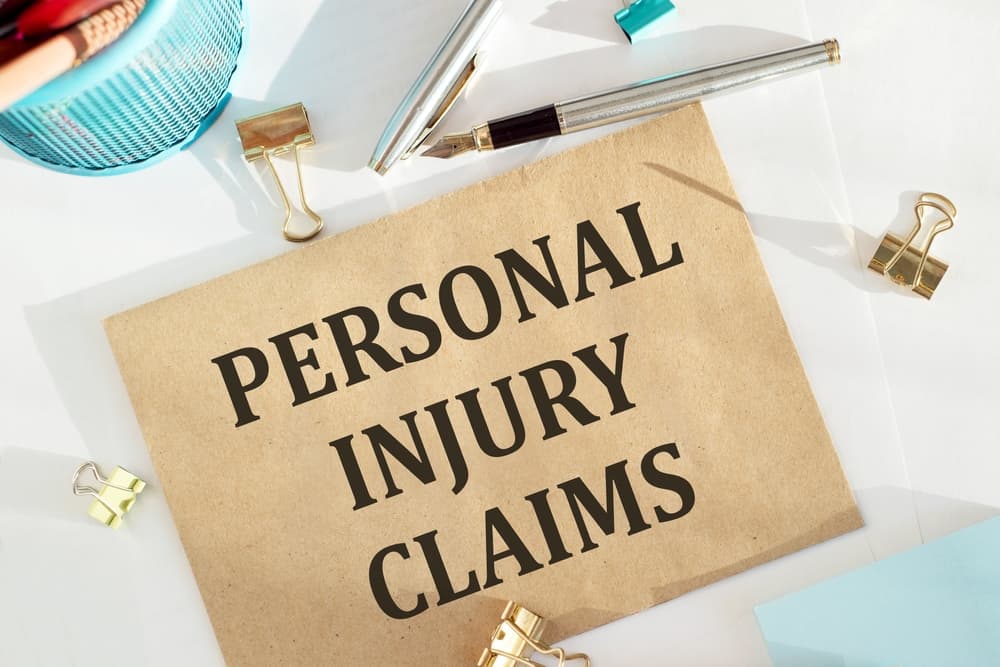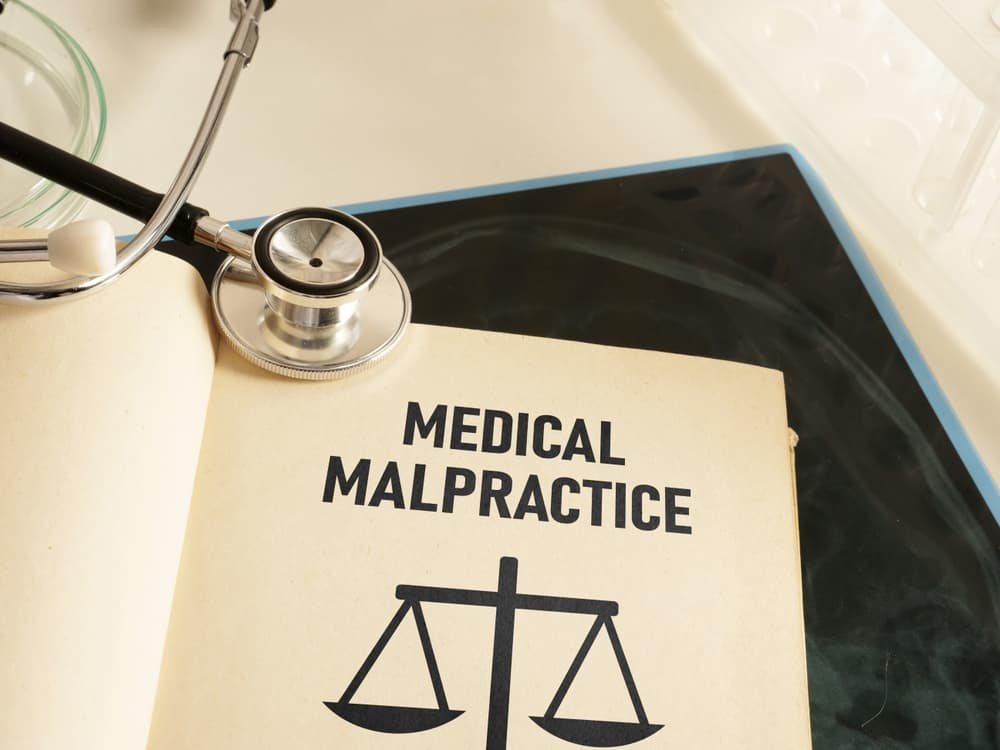Personal injury cases typically arise when individuals and entities behave in a negligent or careless manner. Some of the most common types of personal injury claims involve premises accidents, motor vehicle collisions, medical negligence, and workplace occurrences, where Nationwide insures the at-fault party.
Handling an insurance claim against Nationwide on your own can be extremely risky. This is because large insurance companies like Nationwide have no incentive to compensate injured accident victims fairly – despite what they may say in their advertisements. Rather, these insurance companies want to keep as much of their money in-house as possible. Consequently, they will look for almost any excuse to underpay or outright deny a valid personal injury claim.
Our personal injury lawyers will aggressively fight for your interests throughout the process. If Nationwide refuses to compensate you fairly, we can file a lawsuit in the state court system on your behalf in pursuit of the justice and compensation you deserve.
Common Accidents and Personal Injuries

Negligence is a common cause of various incidents that can have serious consequences, ranging from everyday accidents to significant medical errors. Here’s a look at some of the most frequent occurrences that result from others’ negligence:
- Car Accidents – Car crashes often result from negligence by other drivers, such as speeding, distracted driving (like texting), or driving under the influence of alcohol or drugs. Failing to follow traffic laws and signals can also lead to collisions.
- Truck Accidents – Similar to car accidents, truck accidents frequently occur due to negligence, such as fatigue from long hours of driving, inadequate vehicle maintenance, or overloaded trucks. The size and weight of trucks amplify the damage they can cause, leading to catastrophic injuries and extensive property damage.
- Slip and Falls – Property owners have a duty to maintain safe conditions for visitors. Negligence in this context often involves failing to clean up spills promptly, inadequate lighting, or neglecting to repair uneven surfaces.
- Workplace Occurrences – Negligence in the workplace can lead to accidents such as falls from heights, equipment malfunctions due to lack of maintenance, or failure to provide adequate safety training. Employers (and sometimes third parties) are responsible for ensuring a safe work environment, and negligence can result in serious injuries or even fatalities.
- Medical Malpractice – Medical professionals are expected to provide a certain standard of care to their patients. Negligence in this field can include misdiagnosis, surgical errors, medication errors, or failure to obtain informed consent. Medical malpractice can have severe consequences, including worsened medical conditions, permanent disabilities, or even death.
If Nationwide insured the at-fault party in one of these accident scenarios, we can file a personal injury claim or lawsuit seeking financial compensation for your losses.
Legal Elements of Proof in a Negligence Claim in SC
In a personal injury claim, several legal elements must typically be satisfied to establish liability and obtain compensation for damages. These elements generally include:
- Duty of Care – The first element involves demonstrating that the at-fault party (the defendant) owed a legal duty of care to the accident victim (the plaintiff). For example, drivers owe a duty to drive safely, and property owners owe a duty to maintain safe premises for visitors.
- Breach of Duty – Next, the plaintiff must demonstrate that the defendant breached that duty of care. This means that their actions (or inactions) did not meet the expected standard of care under the circumstances. This can involve reckless driving, failing to repair hazardous conditions, or negligence in providing medical treatment.
- Causation – Causation links the defendant’s breach of duty directly to the plaintiff’s injuries. The plaintiff must show that the defendant’s actions (or lack thereof) directly caused harm. This can sometimes be a complex aspect of the claim, requiring medical evidence or expert testimony.
- Damages – Finally, the plaintiff must demonstrate that they suffered actual damages as a result of the defendant’s breach of duty. Damages can include medical expenses, lost income, pain and suffering, and other financial losses incurred due to the injury.
To satisfy these legal elements, various types of evidence can be crucial:
- Medical Records and Expert Testimony – Medical records detailing the extent and nature of injuries, treatments received, and prognosis are vital. Expert testimony from medical professionals can help to establish the connection between the defendant’s actions and the plaintiff’s injuries.
- Witness Statements – Statements from witnesses who observed the accident or occurrence can provide important details and corroborate the plaintiff’s version of events.
- Photographs and Video Evidence – Visual evidence such as photographs of the accident scene, property damage, or injuries can provide powerful support for the claim.
- Documentation of Financial Losses – Records of medical bills, receipts for expenses related to the injury, and proof of lost income can help quantify the economic damages that the plaintiff suffered.
- Incident Reports and Police Reports – For accidents involving law enforcement, police reports can provide an official record of the incident and any citations issued, which can support the plaintiff’s claim.
Our lawyers can gather the necessary evidence and present a proper claim to Nationwide for compensation in your case.
We Can File an Injury Claim Against Nationwide on Your Behalf
Filing a personal injury claim against a Nationwide insured involves several key steps, each critical to building a strong case for compensation. Here’s an overview of how our lawyers routinely handle this process:
- Initial Consultation – The process begins with an initial consultation between the client and our experienced personal injury lawyers. During this meeting, we gather details about the incident, assess the potential strength of the case, and explain the legal options available.
- Investigation and Evidence Gathering – Our legal team conducts a thorough investigation into the circumstances surrounding the occurrence and injuries. This includes gathering evidence such as witness statements, photographs, medical records, and any documentation relevant to the incident.
- Assessing Damages – Calculating the damages that the victim suffered is a key aspect of the claim. This includes medical expenses, lost income, pain and suffering, and any future economic losses resulting from the injury. Our lawyers work closely with medical experts and economists to accurately quantify these damages.
- Negotiation and Settlement – Before trial, our lawyers can engage in negotiations with the at-fault party’s insurance company (i.e. Nationwide). We will strive to achieve a fair settlement that adequately compensates the accident victim for their losses. Throughout this process, we advocate vigorously for our client’s rights and interests.
- Trial Preparation and Litigation – If a settlement cannot be reached through negotiations, our lawyers prepare meticulously for trial. This involves developing a compelling legal strategy, preparing witnesses, and presenting the strongest possible case in court. Our goal is to achieve a favorable verdict that holds the negligent parties accountable.
- Post-Trial Options – In the event of an unfavorable outcome at trial, our lawyers assess post-trial options, such as appeals to higher courts. Conversely, if successful, we assist in the enforcement of the judgment to ensure that our client receives the compensation they are entitled to recover.
Throughout every step of the process, our lawyers prioritize communication with our clients, keeping them informed and involved in decision-making. We understand the complexities involved in personal injury claims against Nationwide and leverage our experience and resources to effectively pursue justice on behalf of our clients.
What Happens During a Personal Injury Trial Against a Nationwide Policyholder in South Carolina?
When our lawyers handle a trial against a Nationwide insured on your behalf, we follow a structured approach designed to advocate for your rights and pursue fair compensation for your injuries. Here’s a detailed look at how we navigate the litigation process:
- Trial Preparation – Preparation is key to a successful trial. We begin by thoroughly reviewing all evidence gathered during the investigation and discovery phases. This includes witness statements, expert reports, medical records, and any other documentation relevant to your case. Our legal team can then strategize on how best to present this evidence to the judge and jury.
- Developing Legal Arguments – Based on the evidence and legal principles applicable to your case, we craft compelling legal arguments. These arguments are designed to establish liability on the part of the Nationwide insured and demonstrate the extent of your injuries and damages.
- Jury Selection (if applicable) – For cases that involve a jury trial, we participate in the jury selection process. This involves questioning potential jurors to ensure that they can impartially assess the facts of the case and apply the law fairly.
- Opening Statements – At the beginning of the trial, our lawyers will deliver opening statements. These statements outline the key points of our case, including what we intend to prove regarding liability and the effect of the injuries on your life.
- Presentation of Evidence – During the trial, we present evidence to support claims. This may include testimony from witnesses – including expert witnesses who can provide specialized knowledge – as well as exhibits such as photographs, medical records, and other relevant documents.
- Cross-Examination – We will skillfully cross-examine defense witnesses to challenge their testimony and expose any inconsistencies or weaknesses in their arguments.
- Closing Arguments – Once all evidence has been presented, our lawyers will deliver closing arguments. These final statements summarize the evidence presented during the trial and reinforce why the judge or jury should rule in your favor.
- Verdict – After deliberation, the judge or jury will render a verdict. If successful, the verdict will determine the amount of compensation you are entitled to receive.
Our attorneys will use their legal knowledge and advocacy skills to achieve the best possible outcome for you in your claim against a Nationwide-insured.
Recovering Damages from Nationwide in a Personal Injury Claim

In a personal injury claim where Nationwide insures the at-fault party, our goal is to secure various types of compensation that adequately address the damages and losses you have suffered due to the accident. Here are the main types of compensation we can seek on your behalf:
- Past and Future Medical Expenses – One of the primary forms of compensation includes reimbursement for medical bills related to the treatment of your injuries. This encompasses costs such as hospital stays, surgeries, medication, rehabilitation, therapy, and any necessary medical devices.
- Pain and Suffering – Compensation for pain and suffering aims to address the physical and emotional distress resulting from the occurrence. This may include chronic pain, emotional anguish, anxiety, depression, and loss of enjoyment of life.
- Property Damage – If your vehicle or other property was damaged in the accident, we can seek compensation to repair or replace the damaged property. This also extends to personal belongings that were damaged or lost as a result of the incident.
- Lost Earnings – If your injuries have caused you to miss time from work or resulted in a reduced earning capacity, we can pursue compensation for lost income. This includes both the income you have already lost and any future earnings that may be affected.
- Disability and Disfigurement – In cases where injuries result in long-term or permanent disability, disfigurement, or scarring, we can pursue compensation to account for the effect these conditions have on your quality of life and ability to engage in daily activities.
- Loss of Consortium – For spouses or family members, a personal injury claim may include compensation for loss of consortium, which addresses the negative effect the injuries have had on the relationship and companionship with the injured person.
- Punitive Damages (in some cases) – In situations where the actions of the at-fault party were particularly reckless or egregious, punitive damages may be available.
Each of these types of compensation aims to provide financial relief and justice for the hardships you have endured as a direct result of the occurrence. Our lawyers are dedicated to maximizing your compensation from Nationwide by carefully assessing the extent of your damages and pursuing every available avenue of recovery.
Contact Our Experienced South Carolina Personal Injury Lawyers About Your Options Today
If you suffered injuries in an occurrence that resulted from another person or entity’s negligence, our lawyers can be an invaluable help throughout the legal proceedings. If Nationwide insures the at-fault party, we can file a timely claim on your behalf and aggressively negotiate with Nationwide adjusters. If Nationwide refuses to compensate you fairly for your losses, we can represent you during all litigation proceedings – including trial – and pursue a favorable result on your behalf.







